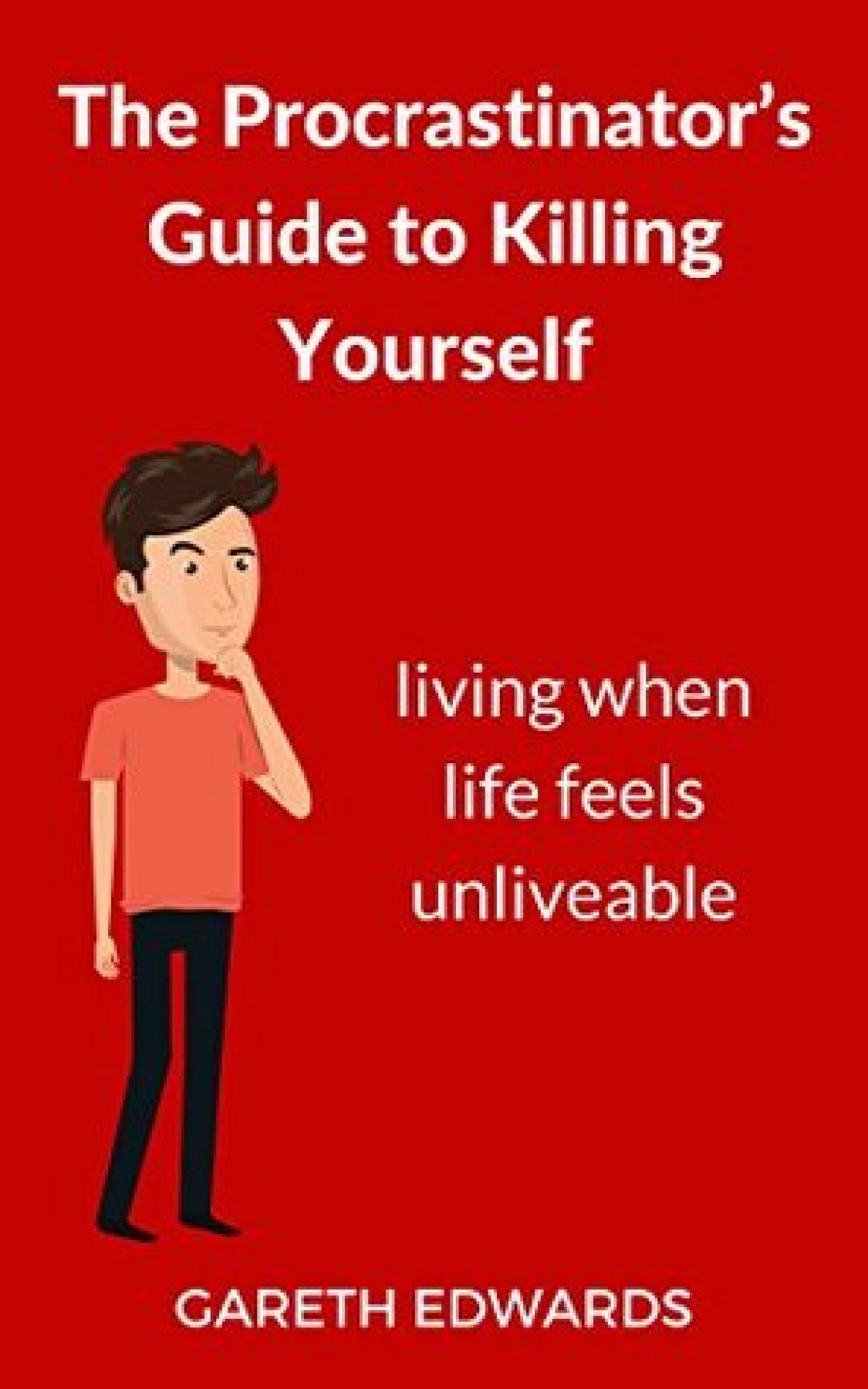This book and its review discuss suicidal thoughts and how to find a way to cope. If you have found this page because you are having suicidal thoughts, know that there is support available and there are pathways to feeling better. We have a range of information about suicide prevention, which you can read on our website; we particularly recommend our resource 'Having suicidal thoughts and finding a way back'.
If you're in immediate danger or have already hurt yourself, please call 111 immediately.
For free, confidential support from a counsellor, contact a helpline service:
- Need to talk? Free call or text 1737 any time for support from a trained counsellor.
- Lifeline 0800 543 354 (0800 LIFELINE).
- Youthline 0800 376 633, free text 234 or email talk@youthline.co.nz or online chat.
- International Helplines: https://findahelpline.com/
The title of Gareth Edwards’ book is confronting and a bit blunt, but it neatly summarises two of his key ideas about how to stay alive when life feels unliveable.
Firstly, procrastination. Gareth shares his experiences of times when he’s felt like killing himself. One of the best things to do in these times, he’s found, is to delay acting on self-destructive feelings. Deciding to wait allows time to try other things instead, and for other feelings and thoughts to develop. The book offers five steps to follow once you’re in this procrastinating space, starting with simply staying alive, and working forward towards feeling like you might want to live. Each step is illustrated with Gareth’s experiences and some of the actions and thoughts that have worked for him.
Secondly, killing yourself. The choice of language is intentional; Gareth avoids using the word suicide because of its history as a legal and moral judgement on “a profound and legitimate human experience”. Wanting to kill yourself, he argues, is a near-universal human experience. Rather than being an indicator that you’re sick or bad, it is a part of being human, experiencing deep distress and recognising the impermanence of life. Letting go of self-judgement for having these thoughts, he suggests, is a helpful step towards moving forward.
The book is a short but deep reflection on what it can be like to feel suicidal, and to find a way through these experiences. It’s a guide, a pep talk and a written peer support session. While it’s a memoir of Gareth’s own life, it’s informed by his significant work with others inside and alongside the mental health support sector. He’s careful not to presume he has the answers for everyone, but generous enough to share his insights and experiences to suggest ways forward.
It is available as an e-book, audio book or paperback from Gareth’s website.
If you’re going through your own thoughts and feelings about killing yourself, and you resonate with Gareth’s approach, some other resources I’d recommend are:
- No Feeling Is Final – a podcast series by Honor Eastly and Graham Panther (of The Big Feels Club) about Honor’s experiences with feeling suicidal, how she’s come to reframe her experiences and thoughts, and what’s helped her get through hard times. You can also read Graham’s story about supporting Honor.
- Having suicidal thoughts and finding a way back – a free Mental Health Foundation resource, written with people who have lived experience of suicidal thoughts and feelings. This resource includes practical suggestions about how to make it through suicidal thoughts, including how to find help from the people around you and support services. The print version of this resource includes a safety plan you can fill out to help you work out what to do if you get to a point where you feel like acting on suicidal thoughts.
Reviewed by Moira Clunie, former Research, Development and Advocacy Manager, Mental Health Foundation

